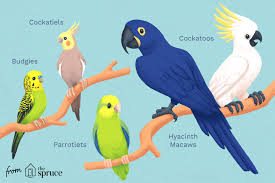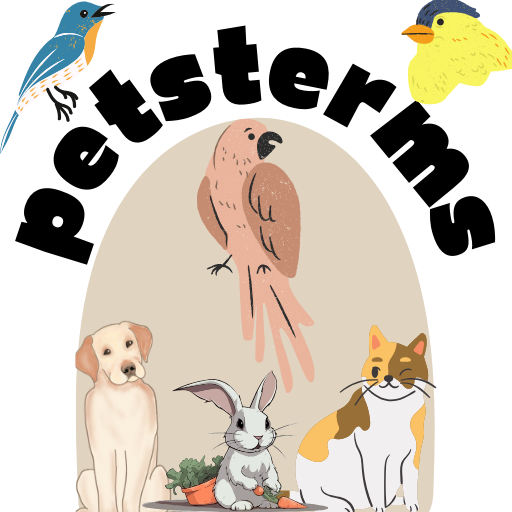Introduction
A pet has been an important part of human life for thousands of years. Whether you have a dog waiting for you at home or a fish swimming peacefully in an aquarium, a pet brings a sense of companionship, joy, and responsibility. But what makes an animal a pet? Why do humans and some animals have such close relationships, and what are the benefits and challenges of having them? This article will explore the world of pets, covering their history, the types of pets people keep, and what makes them such an important part of our lives.

Description of domestic animals
The Basics of Pet Descriptors
Basically, a pet is any animal that people keep for companionship or pleasure. Unlike wild animals, which live independently of humans, domestic animals depend on humans for food, shelter, and care. Pets can range from the most common, such as cats and dogs, to the most dangerous, such as snakes or ferrets.
Difference Between Domestic and Wild Animals
The main difference between domestic animals and wild animals is domestic animals. Animals have been bred for generations to live with humans and often depend on them for survival. On the other hand, wild animals are self-satisfied and prefer to live in their own habitat.
Stories about pets
When did humans start having domestic animals?
Human-animal relationships date back thousands of years. Ancient evidence shows that humans began domesticating animals more than 10,000 years ago, starting with wolves, the ancestors of modern dogs.
In the early days of the house
In early civilizations, animals were kept for practical purposes, such as hunting, herding, or agriculture. However, over time, some animals began to move from the workplace to their companions, having a close emotional relationship with their caretakers.
Transition from utility to industry
Although the first domestic animals fulfilled a functional role, their needs gradually changed. Dogs became loyal companions, while cats were kept for pest control, but quickly became popular family members. The shift from utility to companionship laid the foundation for our modern relationship with pets. Kind of pet
Common pets
Pets found in homes around the world are often easy to care for and have a strong emotional bond with humans.
A dog

Known as “the best friend,” the dog is loyal, loving and protective. They come in different types, each with its own characteristics and qualities, making them suitable for different homes.
Cat
Cats are independent and curious creatures. Although they don’t need attention like dogs, they form strong bonds with their owners and provide them with quiet companionship.

A bird
Birds such as parrots, canaries and finches are popular pets for those who prefer animals that do not require a lot of space. They are often beautiful, intelligent, and able to learn to imitate human speech.

Animals are special
Special pets are rare and often require special care.
Something is moving
Reptiles, such as snakes, lizards and turtles, are becoming increasingly popular as pets. They require a controlled environment and are suitable for experienced pet owners.
The Amphibians
Frogs and salamanders, although less common than other pets, are interesting to watch and make special friends. However, their care can be complicated due to their specific habitat needs.
Mouse
Hamsters, guinea pigs and gerbils are small pets that do not work well for children or people with limited living space. They are very affectionate and easy to care for.
Why do people have pets?
The Emotional Benefits of Pet Ownership
Owning a pet brings many emotional benefits that go beyond just companionship.
Company and solitude
Pets make great companions, comforting those who live alone or feel lonely. They offer unconditional love and loyalty, filling the emotional void that can result from loneliness.
Pets as a stress reliever
It has been scientifically proven that spending time with pets can reduce stress. Petting the dog or watching fish swim can reduce anxiety levels, providing a sense of calm after a long day.
The responsibility of owning a pet
Financial commitment
Owning a pet is a financial undertaking that includes food, health care, grooming and sometimes even special training. Pet owners should be prepared for regular and unexpected expenses.
Time and attention
Pets need time, whether it’s a daily walk for the dog or playtime for the cat. Some pets, especially pets, require specific care and attention that can take time.
Health benefits of pets
Physical health benefits
Exercise increases
Dogs, in particular, encourage their owners to stay active. Regular walks, playtime, and outdoor activities contribute to better physical health for both pet and owner.
Reduce blood pressure and heart rate
Research shows that pet owners tend to have lower blood pressure and heart rates, which contributes to overall heart health.
Mental health benefits
Reduce stress and depression
Pets provide emotional stability by providing structure and purpose. For many people, the companionship of pets helps reduce symptoms of anxiety and depression, making everyday life easier.
The role of pets in society
Animals interact with therapy and work
Companion animals play an important role in society, especially in therapeutic and service roles.
Assistance dog
Assistance dogs are trained to assist people with disabilities and help them navigate everyday life. These dogs can guide the blind, inform the deaf or even detect epileptic seizures.
Emotional Support Animals
Emotional support animals provide comfort to those struggling with mental health issues, providing a source of stability and reassurance.
Choosing a good pet
These are the things to consider before adopting a pet
Size and space
The size of your home should influence your pet selection. Larger animals, such as dogs, may prefer a garden, while smaller animals, such as birds or mice, may do better indoors.
Time commitment
Every animal needs attention. It is important to think about how much time you will spend on their care and well-being before bringing a home.
Cost and maintenance
Different pets pay different prices. It is important to understand the long-term financial commitment involved with the animal you are considering adopting.
Training and socializing your pet
Basic obedience training
Proper training ensures that your pet behaves well and understands basic rules, making life easier for both the pet and the owner.
Match pets for better behavior
Socializing pets, especially dogs, helps them adapt to different environments and get along better with people and other animals.
Challenges of Owning a Pet
The following are common problems related to Pet Ownership
Behavioral problems
Pets can develop behavioral problems, such as aggression, excessive aggression, or destruction of property. Addressing these issues early is important for a healthy owner-pet relationship.
Health problems
Like humans, pets can suffer from various health problems. Regular pet care is important to keep them healthy and ensure a healthy life.
End of Life Care for Pets
Managing aging pets
As pets grow, their needs change. Providing proper care for senior pets includes regular pet visits, feeding changes, and managing mobility issues.
Grieving the loss of a pet
Abandoning a pet can be one of the most emotionally challenging experiences. It is important to accept the grief and give yourself time to heal.
Conclusion
Pets play a valuable role in our lives, providing companionship, emotional support and even physical health benefits. Although owning a pet comes with responsibilities and challenges, the benefits outweigh the costs. Whether you are a dog lover, a cat lover, or someone who prefers cute animals, the bond between humans and animals is undeniable and fulfilling.
FAQs
What is the most popular pet?
Dogs and cats are the most common pets, followed by birds, fish and small rodents such as hamsters.
Do pets improve mental health?
Yes, pets can reduce stress, anxiety and depression by providing companionship and emotional support.
What is a special pet?
Special animals are rare animals such as snakes, lizards and amphibians, which often require special care.
How much does owning a pet cost?
The cost of owning a pet varies depending on the type of animal, but owners should budget for food, medical care and other essentials.
How do I choose the right pet for me?
Consider factors such as your living space, available time and budget when choosing the right pet for your lifestyle.

